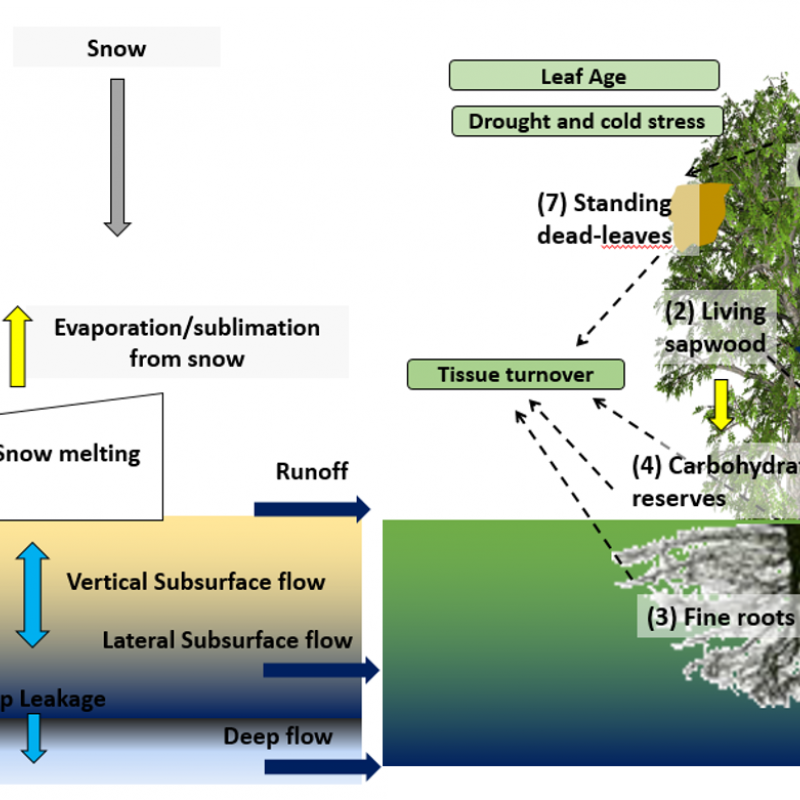Quantifying Ecohydrological Processes in Arid and Semi-Arid Ecosystems

The concept of nature conservation as well as ecosystem sustainability has received substantial attention of the human society, such is even more so recently given the dire IPCC warning about the adverse impacts on ecosystem by future climate change. Such impacts are thought most severe in arid and semi-arid lands where ecosystems already suffer intense water stress and any disturbance to the established situation may quickly disturb and destroy the sustainability. There are however little quantitative data and information to provide a precise assessment of these impacts. Nature conservation and ecosystem sustainability need observation, experimental work and modeling to better understand the underlying eco-hydrological and regional processes. This better understanding is crucial to analyze and forecast the effectiveness of management options in particular in adaptation to climate changes. Nevertheless, the current investigations of ecosystems are based on simplified consideration of ecohydrological processes, for example: the decoupling of soil moisture and heat transport; the lack of description on a complete transport pathway of soil water from the root to the leaf. This MSc topic is going to look into these issues while considering detailed, vital and necessary biogeophysical processes.
The STEMMUS numerical soil-water-atmosphere model (Zeng and Su, 2013; Yu et al., 2016) and SCOPE radiative transfer-photochemistry-non-radiative energy dissipation model (van der Tol et al., 2009) will be combined as a numerical toolbox to examine the field/grid derived scaling functions between soil moisture, soil evaporation, transpiration and vegetation functioning in order to link the states of soil moisture to evapotranspiration and GPP products on regional scale, while pertaining to the physical consistency. The derived scaling relationship will be compared and used as benchmark for simplified parametrizations in other operational ecohydrological models for informing the ecological sustainability.
